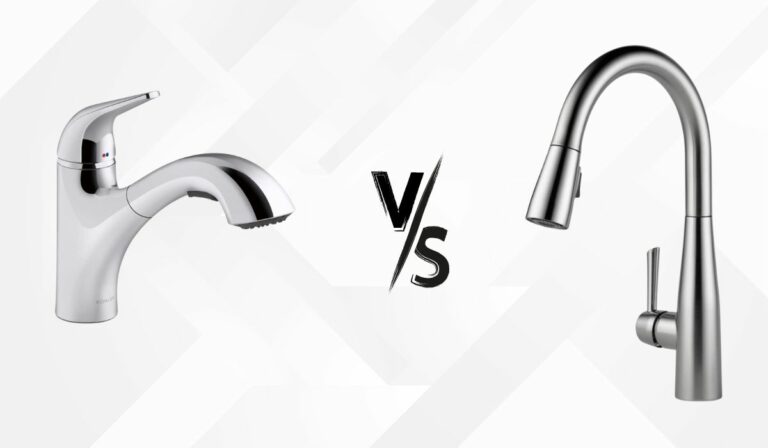When Is the Best Time to Buy Kitchen Appliances
Buying kitchen appliances is a significant investment, so timing your purchase can save you hundreds, if not thousands, of dollars. But when exactly should you buy to snag the best deals? Whether you’re updating your entire kitchen or just replacing a single appliance, understanding market patterns and sales cycles will empower you to shop smart and maximize your savings. In this guide, you’ll discover the optimal times to buy, key sales events, and savvy strategies that help you spot true bargains on appliances.
Understanding Kitchen Appliance Buying Cycles
Seasonal Sales and Discounts to Watch For
Kitchen appliances often follow predictable seasonal sales trends. For example, during the late summer and early fall, retailers frequently reduce prices to make way for new models hitting the shelves. Also, January and February tend to have clearance sales as stores clear out inventory from the holidays.
Watching for these seasonal dips can save you a lot. Spring can also be a good time, as some stores promote special deals around Mother’s Day or spring cleaning events. The key is to align your buying timeline with these predictable patterns instead of shopping impulsively.
Major Holiday Sale Events That Offer the Best Deals
Holidays are famous for deep discounts on kitchen appliances. Keep your eyes on events like:
- Black Friday and Cyber Monday: Traditionally the biggest sales days, offering steep discounts on high-end appliances and brands.
- Presidents’ Day: Frequently includes significant markdowns on major appliance categories.
- Memorial Day and Labor Day: Both holidays see extensive promotional offers with bundle deals or rebates.
If you can wait for these holiday windows, it’s often worth it for the high-ticket items.
The Impact of New Model Releases on Prices
Appliance manufacturers typically release new models annually. When this happens, older models are marked down to clear space.
For example, new refrigerators, ovens, or dishwashers might debut in late summer or fall. If you don’t need the latest features, buying the outgoing model can offer excellent value at reduced prices. Just remember to check for warranty coverage and confirm that service parts remain available for older models.
How Retailers Price Kitchen Appliances Throughout the Year
Timing Your Purchase Around Store Inventory Turnover
Retailers sprint to move inventory when seasonal shifts occur, especially when new models arrive. Knowing that late summer and early winter are prime times for inventory turnover can help you plan your purchase.
Stores might also run “end of month” or “end of quarter” sales where salespeople are under pressure to meet quotas, great opportunities to get extra discounts. Shipping delays and stock levels can also temporarily influence pricing, so it never hurts to ask about upcoming shipments.
Online vs. In-Store Pricing Trends
Pricing strategies often differ between online and brick-and-mortar stores. Online retailers may run flash sales, limited-time deals, or exclusive coupon codes, giving you a good shot at savings without stepping outside.
Conversely, in-store purchases sometimes allow for negotiation or open-box discounts you won’t find online. Some stores match online prices too, so it pays off to do a little comparison shopping. Use this to your advantage by browsing online first and then visiting stores with concrete offers in hand.
Tips for Tracking Prices and Recognizing True Savings
Using Price Comparison Tools and Alerts Effectively
You don’t need to manually check every major retailer every day. Use online price comparison websites or browser extensions like Honey, CamelCamelCamel, or PriceGrabber to monitor prices and receive alerts when your desired appliance hits a target price.
Set realistic thresholds and be patient, some deals fluctuate over weeks. Tracking historical price data also helps you identify if a “sale” is truly a bargain or just marketing hype.
Evaluating Warranty and Return Policies During Sales
Great prices are only part of the equation. Carefully read the warranty terms and return policies before committing.
Sales prices sometimes come with stricter return conditions or shorter warranty periods. Ask about service support and check manufacturer reputation so you’re not stuck with a lemon. Sometimes paying slightly more for a robust, backed product is a smarter long-term investment.
Additional Strategies for Saving on Kitchen Appliances
Buying Open-Box or Refurbished Appliances
If you’re open to alternatives, open-box appliances, items returned shortly after purchase, often look and work like new but carry a reduced price tag. Reputable retailers usually inspect and certify these products.
Refurbished models from manufacturers come with warranties and have undergone rigorous quality checks. Exploring these options can be excellent if you want premium appliances without paying full retail.
Negotiating Prices with Retailers
Don’t shy away from negotiation, especially in physical stores. Sales associates may have flexibility to lower prices, waive delivery fees, or include free accessories if you ask.
Coming armed with competitor prices and timing your visit during slower shopping days can increase your leverage. Remember, a polite, informed approach often yields the best results.
Conclusion
Perfect timing can turn kitchen appliance shopping from a stressful chore into a rewarding game of strategy. By understanding buying cycles, tracking sales events, leveraging online and in-store dynamics, and considering alternative purchasing options, you put yourself in the driver’s seat to secure exceptional deals.
Plan ahead and be patient, your wallet will thank you. Whether you’re outfitting a new kitchen or upgrading existing appliances, these insider tips will ensure you shop smart and enjoy your new gear without regret.

